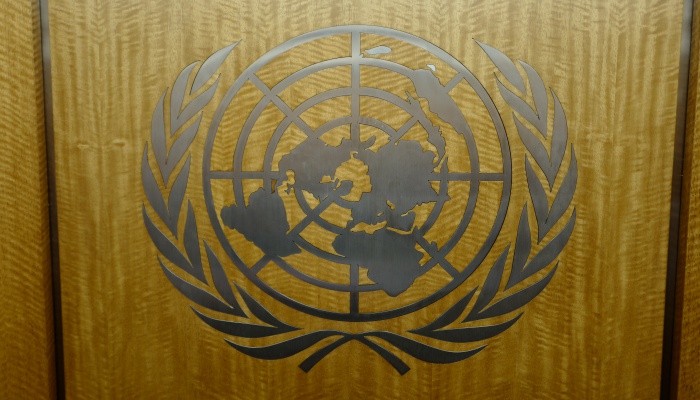UN special rapporteurs in a joint letter sent to the Turkish government on February 11 expressed serious concern about Turkey’s new terrorism financing legislation due to its provisions exceeding the scope of the law and targeting freedom of association in the country, the Stockholm Center for Freedom reported.
UN officials underlined that Law No. 7262 on Preventing Financing of Proliferation of Weapons of Mass Destruction, which entered into force on December 31, introduces restrictions on the activities of human rights defenders and civil society in general.
The terrorism financing legislation amends seven domestic laws and enables the interior ministry to target nongovernmental groups’ legitimate and lawful activities and the right to association of their members.
The UN letter was sent by Fionnuala Ní Aoláin, special rapporteur on the promotion and protection of human rights and fundamental freedoms while countering terrorism; Clément Nyaletsossi Voule, special rapporteur on the rights to freedom of peaceful assembly and of association; and Mary Lawyer, special rapporteur on the situation of human rights defenders.
With reference to Articles 4, 7, 10, 12, 13 and 15 of the law, the UN rapporteurs emphasized that the use of legislation to create undue and complex burdens on non-profit organizations (NPO) has the effect of limiting, restricting and controlling civil society.

The UN officials asked the Turkish government to reconsider certain aspects of this legislation to ensure its compliance with international human rights regulations and to provide information on how the process of implementation of this law is compatible with the obligations for fair trial and due process stipulated in the International Covenant on Civil and Political Rights (ICCPR).
“The second part of the Law appears to introduce restrictions and provides oversight rules which focus on NGOs, business partnerships, associations, and fundraising. It also grants new powers to the executive branch of the Government …” the letter said.
The UN document noted that civil society and other concerned groups were not consulted nor were their views sought.
“… provisions of the law greatly exceed the aim of preventing financing of terrorism and weapons proliferation,” the letter said. According to the UN rapporteurs, measures should be “focused and proportionate” in line with Recommendation 8 of the Financial Action Task Force (FATF).
Reminding the Turkish government of several UN Security Council resolutions, ICCPR rules and FATF Recommendations, the letter stated that measures taken to combat terrorism or violent extremism, including incitement of and support for terrorist acts, must comply with all the country’s obligations under international law.
Nearly 680 civil society groups signed a declaration against the law before the vote in the Turkish parliament, saying it would limit their ability to raise funds and organize while putting them under ministry pressure. They said the law violates the Turkish Constitution, which guarantees freedom of association.
Human Rights Watch said in a statement, “Turkish prosecutors regularly open terrorism investigations into people for peacefully exercising rights to freedom of expression, assembly, and association.
“The Turkish government’s new law on curbing financing of terrorism, with the new powers it grants the Interior Ministry, conceals within it another purpose: that is to curtail and restrict the legitimate activities of any nongovernmental group it doesn’t like,” said Hugh Williamson, Europe and Central Asia director at Human Rights Watch.
Following a failed coup in Turkey in July 2016, the Turkish government ruled the country under a state of emergency that was in force until 2018, during which a total of 1,748 associations and foundations were shut down by decree-laws.



